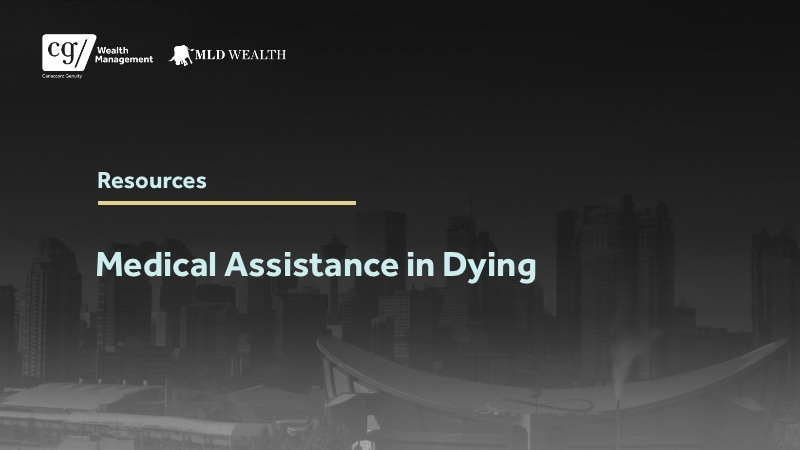Medical Assistance in Dying

Medical Assistance in Dying
Resources
|
February 7, 2025
|
Chad Larson
Medical Assistance in Dying (MAID) in Canada: Understanding Your Rights and Options
Medical Assistance in Dying (MAID) is a legally recognized medical procedure in Canada that allows eligible individuals to voluntarily end their life with the assistance of a healthcare provider. Since its legalization in 2016, MAID has undergone several legislative changes to expand accessibility and clarify eligibility requirements. Understanding the legal, ethical, and procedural aspects of MAID is crucial for individuals considering this option and their families.
Eligibility for MAID
To qualify for MAID, an individual must meet specific legal criteria under the Criminal Code of Canada:
- Be at least 18 years old and capable of making informed healthcare decisions.
- Be eligible for government-funded healthcare services in Canada.
- Have a grievous and irremediable medical condition, which means:
- The condition is serious and incurable.
- The individual is in an advanced state of irreversible decline.
- The condition causes enduring physical or psychological suffering that cannot be relieved under conditions the person considers acceptable.
- Make a voluntary request for MAID without external pressure.
- Give informed consent after being made aware of all other medical options available.
The MAID ProcessThe process of requesting and receiving MAID involves several steps:
- Initial Request: The patient must submit a written request, signed by two independent witnesses.
- Assessment by Two Clinicians: Two independent healthcare providers (physicians or nurse practitioners) must assess and confirm eligibility.
- Reflection Period: In cases where natural death is not reasonably foreseeable, a 90-day assessment period applies.
- Final Consent and Procedure: Before MAID is administered, the patient must provide final consent, unless they have previously been granted a waiver for loss of capacity.
Types of MAIDThere are two primary ways MAID is administered:
- Clinician-administered MAID: A physician or nurse practitioner directly administers the medication to end life.
- Self-administered MAID: The patient takes prescribed medication themselves under medical supervision.
Changes and Expanding Access
- In March 2021, Bill C-7 removed the requirement that natural death must be reasonably foreseeable, broadening access.
- The government has proposed future expansions to include individuals suffering solely from mental illnesses (initially set for March 2024, but under review).
- Additional safeguards and oversight mechanisms are in place to ensure ethical and medical standards are upheld.
Ethical and Legal ConsiderationsMAID remains a complex and deeply personal issue. While it provides an option for those experiencing intolerable suffering, ethical concerns persist, especially regarding individuals with disabilities and mental health conditions. Healthcare professionals also have the right to conscientious objection but must provide referrals.ConclusionMAID is a legally protected right in Canada, offering dignity and choice for those facing grievous medical conditions. However, it is essential to thoroughly understand eligibility, process, and implications before making this decision. Consulting with healthcare providers, legal advisors, and loved ones can help ensure an informed and compassionate approach to end-of-life care.For more information on MAID policies in your province, visit your regional health authority’s website or speak with a qualified healthcare professional.


.svg)
